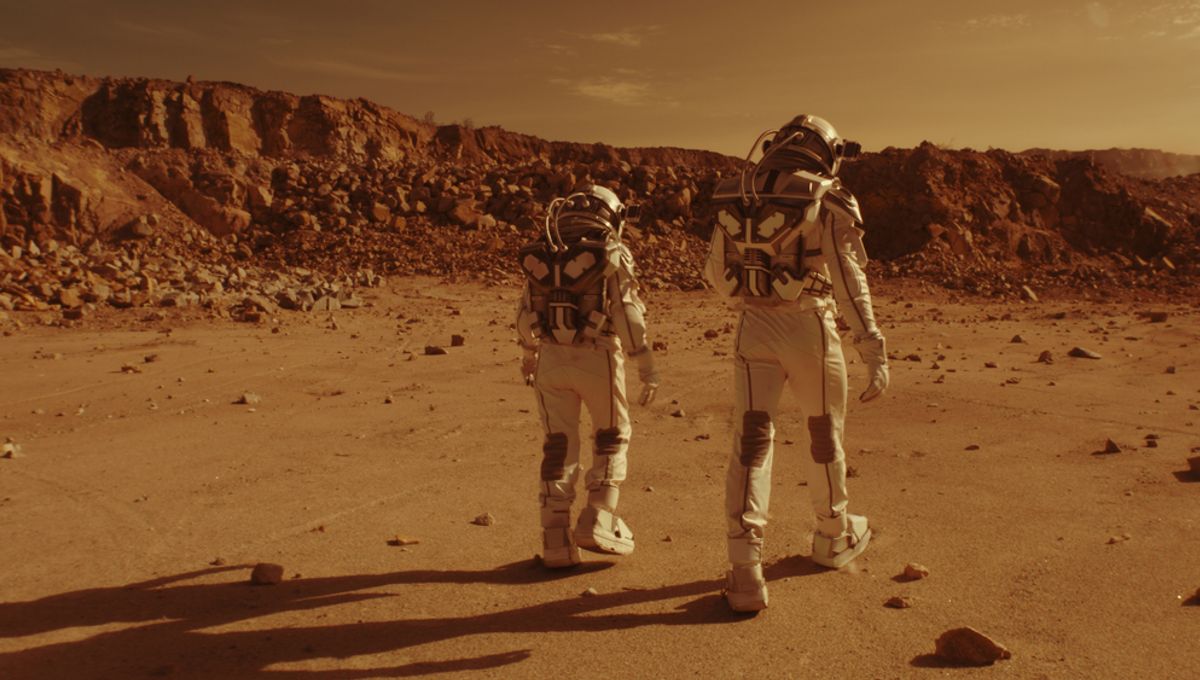
When astronauts head to Mars, they will experience time dilation. That’s to be expected. In fact, your feet and your head experience time dilation, with your head aging ever so slightly faster than your feet. But how much time dilation will they experience (relative to Earth observers)?
First off, let’s check we’re all on the same page. Time passes at different rates for different observers, depending on their relative speeds, and their proximity to (and strength of) nearby gravitational fields. Time dilation is the difference between time elapsed on two clocks due to these causes, as described by special relativity and general relativity.
Gravity curves spacetime. The result is that the stronger gravity is near you, and the closer you are to the mass creating it, the slower time moves (from the standpoint of an observer, or whoever has the second clock. From your perspective, time ran at the usual speed). This is how your foot is younger than your old (relatively speaking) haggard head.
The further you get away from Earth’s gravity – say, by working at the top of a skyscraper – the more pronounced the time dilation effect (compared to observers on the ground). It’s not a huge effect, measuring just a tiny fraction of a nanosecond a year.
For astronauts and cosmonauts living in zero-gravity environments for long stretches, the effect is more pronounced, but effectively canceled out by the speed at which spacefarers tend to travel.
“Because astronauts and satellites orbiting the Earth are slightly further away from the centre of the planet (compared to people on the ground) they actually experience less gravitational time dilation. On its own this would mean astronauts’ time would run faster,” astronomer Colin Stuart explained for Ted Ed. “However, this effect is quite small because Earth’s gravity is quite weak and so the time dilation due to their speed wins out and astronauts really do travel a tiny amount into their futures.”
Cosmonaut Sergei Krikalev – who became stranded in space for 311 days as the Soviet Union collapsed and logged a total of 803 days, 9 hours, and 39 minutes in space – technically traveled 0.02 seconds into the future according to Universe Today.
Heading to Mars on a 21-month round trip, astronauts will experience small amounts of time dilation. From their point of view, time will pass normally – while compared to Earth observers, there will likely be a few nanoseconds difference. Though the speeds will be faster than any human has traveled in history, in comparison to light speed – where time dilation effects get extremely pronounced – it is peanuts.
If astronauts are to stay on Mars for extended periods of time, then the effect of gravitational time dilation gets within the realms of noticeable. According to The Illinois Physics Van, a human living exactly 80 years on Mars would die about 12 seconds earlier than if they lived exactly 80 years on Earth. But from their point of view, it wouldn’t have felt like that, spacetime is just weird.
An earlier version of this article was published in January 2024.
Source Link: Mars-Bound Astronauts Will Experience The Effects Of Time Dilation